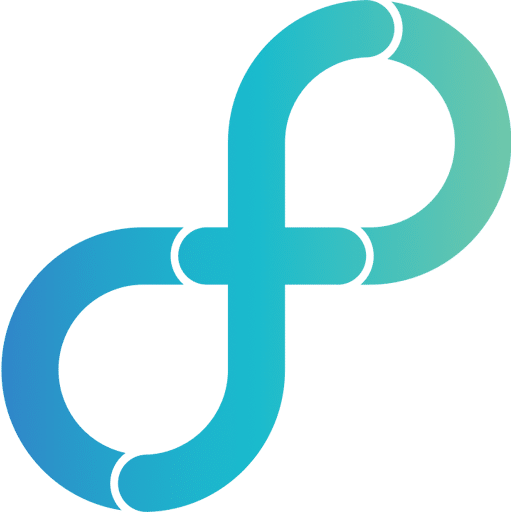High-quality clinical trials require high-quality research teams.
That’s the central tenet of a paper by public health professional Allison Alley and fellow medical researchers. Though staffing is one of the most expensive components of a research program, it is one of the most important, the authors note. For clinical trial organizers, this means putting extra emphasis on hiring the right people.
The ultimate goal when building a research team is to build one that has great chemistry. Collaboration is an essential ingredient to the success of clinical trials, says Daryl Ann Fallon, VP of proposal development at Premier Research. But recruiting a team of researchers with the right qualifications and great chemistry isn’t simple.
Why hiring for clinical trials is challenging
There are a number of challenges that make it difficult to build cohesive clinical trial research teams.
One of the primary hurdles is the shortage of workers in the industry. It’s a booming industry that is growing at a rapid pace, and the supply of labor is lagging. “There are simply not enough study coordinators, site monitors, and principal investigators to do the work that needs to be done,” writes Jim Kremidas, executive director of the Association of Clinical Research Professionals (ACRP). He warns that the workforce may have trouble keeping up over the next few years.
Another issue plaguing the industry is the ever-changing nature of roles on research teams. According to Andy Burrows at KNect365 Life Sciences, defining the roles and responsibilities of research staff at a time when those definitions are rapidly evolving is one of the industry’s biggest challenges. Clinical trials are becoming more complex, which has led to more dynamic and remote working environments that are leading to changes in long-held perceptions of job requirements and the way staff is managed. When organizers have trouble defining roles, it becomes more difficult to hire.
Globalization is also a challenging issue in the clinical trials industry. Technology has opened the door for more geographically diverse clinical trials. Dr. Ricardo Eccard da Silva with the Brazilian Health Regulatory Agency and his team note that there has been a significant increase in clinical research studies taking place in countries outside of the United States. They share that, over the last 10 years, that number has more than doubled.
This presents a unique hiring challenge: finding experienced research professionals in other countries. Site organizers for such trials must have hiring resources that allow them to recruit and hire research staff in areas where they have little experience or access.
Finally, there is the matter of diversity and inclusion, drivers of excellence in medicine, notes Dr. Desmondes Haynes, a pulmonologist in Jackson, Mississippi. Dr. Haynes presents these as some of the key benefits to building diverse research teams:
- Diverse teams are more capable of solving complex problems.
- Diverse teams bring a variety of backgrounds and experiences to a trial. This leads to a richer set of research questions as well as informed perspectives on diseases that disproportionately affect specific populations.
- Diverse teams meet the growing industry model of valuing contributions from a range of perspectives over a singular perspective.
In the end, it’s the quality of the trials that suffer when there are staffing struggles.

How Talent Intelligence software improves hiring processes
While talent intelligence software may not be able to solve all the hiring challenges for clinical trials, it can help trial organizers find the best managers, researchers and staff.
How? By analyzing data to match the best candidates to the positions.
Traditionally, trial organizers have scanned hundreds to even thousands of resumes for specific experiences and criteria to find qualified candidates for a position. The data points were limited because of the sheer volume of resumes and the complexity of manually tracking relevant data.
AI-powered recruiting software streamlines this process by capturing more data points more quickly. AI has the ability to
- simultaneously search for candidates from a number of different recruiting sources,
- screen candidate resumes,
- assess candidates’ fit for positions,
- and identify the best candidate matches.
This eases the process of finding the right talent. Oracle CEO Mark Hurd says his company follows a similar model. “We recruit 2,000 college students today,” he says. “It used to be done manually, but now we use machine learning and algorithms to figure out where to source people.”
The magic lies in the analysis of the data. The data-capture and data-analysis capabilities of these systems go beyond what is simply on a resume. For example, these tools have the ability to search out candidates’ digital footprints to match to job requirements; gather existing employees’ experiences and skills, then apply those to the new candidate search; and analyze personality traits and skills to compare candidates against job requirements.
Armed with this level of analysis, organizers have a better chance of building the team of researchers their clinical trials require.

Hiring systems promote diversity
“Diverse research teams are more likely to have diverse ideas,” concludes the University of California, San Francisco’s Esteban Burchard and fellow researchers, who studied the diversity of clinical trial populations after the passage of the Revitalization Act in 1993, which required federally funded research to be more inclusive of women, people of color and minority groups.
The globalization of clinical trial research has made it especially important for trial organizers to hire culturally competent staff from the populations represented in the study, says Ryan Bailey, senior clinical researcher at drug development company Rho.
But human biases often get in the way. In general, diversity and inclusion programs are failing to meet objectives, with 57 percent of employees saying their companies are not more diverse, as we point out in our Talent Intelligence & Management Report, which was drawn from surveys of more than 1,000 C-suite executives at large organizations. This can be a severe detriment to medical research studies that rely on a variety of ideas, inputs and experiences to solve medical problems on a global scale.
AI hiring platforms help eliminate the biases that get in the way of diversity and inclusion efforts because they parse only data, not the identity of the person behind that data.
Talent intelligence software gives trial organizers the opportunity to build stability into clinical trials from the beginning by putting together strong teams. By doing everything they can upfront to hire the right people, organizers improve the chances of their research being successful.
Images by: Alexander Raths/©123RF.com, Edhar Yuralaits/©123RF.com, Evgeniy Shkolenko/©123RF.com










